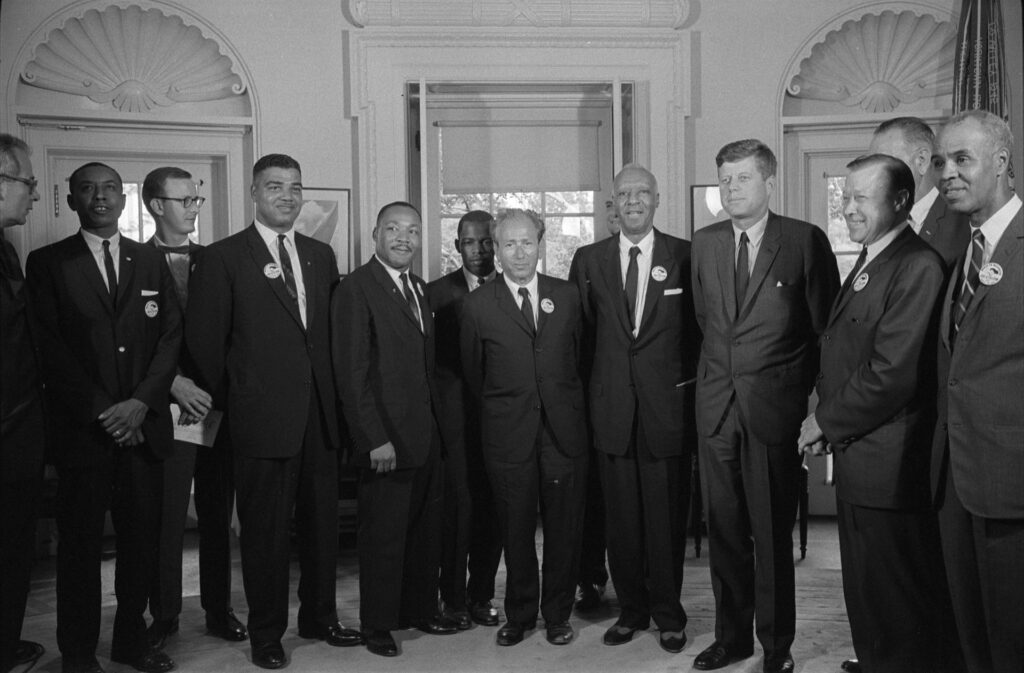c) Civil Rights Act
The Civil Rights Act of 1964, a landmark U.S. civil rights and labor law, was enacted on July 2, 1964, to outlaw discrimination based on race, color, religion, sex, and national origin. It addressed unequal voter registration, racial segregation in schools and public accommodations, and employment discrimination. Proposed by President John F. Kennedy in 1963 and strongly advocated by President Lyndon B. Johnson following Kennedy’s assassination, it faced significant opposition, including a prolonged Senate filibuster. The Act was a major legislative achievement, enhancing civil rights protections and asserting congressional authority under the U.S. Constitution to regulate interstate commerce and guarantee equal protection and voting rights. It was a critical step in the progress towards equality and social justice in the United States, symbolizing the federal government’s commitment to ending racial segregation and discrimination.

